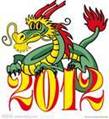题目内容
People in different _______ like to eat different food. _______ kind of food do people would like ________? For example _______, fried potatoes chips are very _______ . Sometimes people _______ them at home, but they usually go to a fast food restaurant _______ them. They can _______ them in the restaurant _______ bring them away at home. Sometimes, they ________ like to eat them in the park.
| 小题1: |
|
| 小题2: |
|
| 小题3: |
|
| 小题4: |
|
| 小题5: |
|
| 小题6: |
|
| 小题7: |
|
| 小题8: |
|
| 小题9: |
|
| 小题10: |
|
小题1:B
小题2:C
小题3:B
小题4:C
小题5:A
小题6:D
小题7:D
小题8:B
小题9:C
小题10:B
试题分析:本文叙述了不同国家的人喜欢吃不同的食物。比如,英国人喜欢吃炸薯条。他们有时在家做。他们经常去快餐店买,或者在餐馆吃,或者带回家吃。有时,他们在公园里吃炸薯条。
小题1:考查名词及语境的理解。A. cities 城市;B. countries 国家;C. towns城镇; D. homes家。根据文中提到有喜欢fried potatoes chips,有喜欢 fast food的,故是指不同的国家, 故选B。句意:不同国家的人们喜欢吃不同的食物。
小题2:考查代词及语境的理解。A. where 哪里; B. when何时;C. what 什么;D. who谁。What kind of food“什么类型的食物”,故选C。句意:人们喜欢什么类型的食物?
小题3:考查动名词及语境的理解。A. eat 吃;B. to eat 吃;C. eating 吃;D. eats 吃;根据短语would like to do sth,喜欢做某事,故此处用动词不定式to eat。故选B。句意:人们喜欢吃什么类型的食物?
小题4:考查介词短语及语境的理解。根据短语 in the UK 在英国。故选C。句意:比如,在英国炸薯条是很受欢迎的。
小题5:考查形容词及语境的理解。A. popular 受欢迎的;B. large 大的;C. small 小的;D. cheap便宜的。根据_______ kind of food do people would like可知此处指的是人们喜欢的食物,也就是受欢迎的食物,故选A。句意:在英国炸薯条是很受欢迎的。
小题6:考查动词及语境的理解。A. cooking 烹饪,做饭;B. cooks 烹饪,做饭;C. are cooking 烹饪,做饭;D. cook烹饪,做饭;根据时间副词Sometimes可知此处用一般现在时,因为主语是people,故谓语用复数形式,故选D。句意:有时,人们在家做炸薯条。
小题7:考查动词及语境的理解。 A. buy 买;B. buys 买;C. buying 买;D. to buy买;结合句意,go to a fast food restaurant 去快餐店是为了买炸薯条,故此处用动词不定式表示目的。故选D。句意:但是他们经常去快餐店买炸薯条。
小题8:考查动词及语境的理解。 A. has 有,吃; B. have 有,吃;C. to have 有,吃;D. having 有,吃;此处缺少谓语,因为主语是they,故谓语用复数形式,故选B。句意:他们有时会在餐馆里吃炸薯条。
小题9:考查连词及语境的理解。 A. and 而且;B. but 但是;C. or 或者;D. so所以。此处在餐馆吃和带回家吃,表示并列关系,是两种不同的选择,故用连词or。故选C。句意:或者把炸薯条带回家。
小题10:考查副词和连词及语境的理解。 A. too 也,用于肯定句,位于句末;B. also也,用于肯定句,位于句中;C. either 也,用于否定句,位于句末;D. and而且,连词。因为此句是肯定句,不切位于句中,故用副词also。故选B。句意:有时,他们也喜欢在公园吃炸薯条。

练习册系列答案
相关题目





